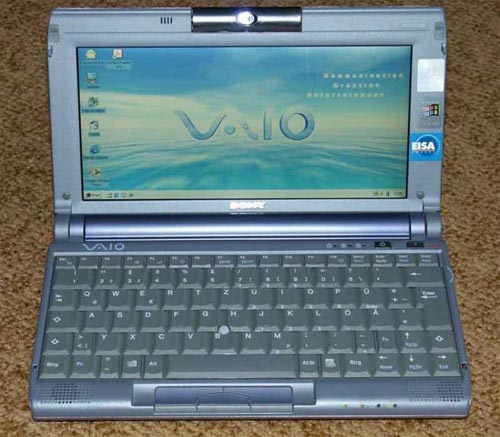It's worth noting that the netbook was originally envisioned and marketed as what the tablet is currently doing. It was a tiny computer with a simple interface to get a couple of things done without much power. The fact that it is laptop shaped lead people to assume it should be a laptop, and it slowly evolved into being just a smaller laptop that needs to be able to run WoW or it isn't really a computer. :rolleyes:
Second, you should notice that on a freshly purchased computer with Windows pre-installed, it also comes bundled with a LOT of trial applications, hereafter referred to as garbage

. Some people actually pay for this garbage when the trial period ends. The companies that produce this garbage pay manufacturers to pre-install their trial software knowing that some people will pay for it. The amount that these companies pay to have their garbage pre-installed on your OS is approximately the same as the cost of Windows. So when you buy a new computer, you aren't actually paying anything for the license, all that trial software gets you a "free" copy of Windows. Many years ago, I believe it was HP that did the Linux laptop experiment: instead of Windows, you could get a laptop with a branded version of Ubuntu pre-installed. Unfortunately, no one has paid software for Linux that would be worth a pre-installed trial edition, so there was no companies to subsidize the cost, thus the Linux laptop cost the same as the Windows laptop. A little bit more as I recall, actually. The reviews for the Linux Laptop were full of "don't buy this, buy the Windows version and install Ubuntu on it. It's cheaper and you get a free copy of Windows you can dual boot into if you need it". And then the Linux Laptop was dropped.

. Some people actually pay for this garbage when the trial period ends. The companies that produce this garbage pay manufacturers to pre-install their trial software knowing that some people will pay for it. The amount that these companies pay to have their garbage pre-installed on your OS is approximately the same as the cost of Windows. So when you buy a new computer, you aren't actually paying anything for the license, all that trial software gets you a "free" copy of Windows. Many years ago, I believe it was HP that did the Linux laptop experiment: instead of Windows, you could get a laptop with a branded version of Ubuntu pre-installed. Unfortunately, no one has paid software for Linux that would be worth a pre-installed trial edition, so there was no companies to subsidize the cost, thus the Linux laptop cost the same as the Windows laptop. A little bit more as I recall, actually. The reviews for the Linux Laptop were full of "don't buy this, buy the Windows version and install Ubuntu on it. It's cheaper and you get a free copy of Windows you can dual boot into if you need it". And then the Linux Laptop was dropped.


